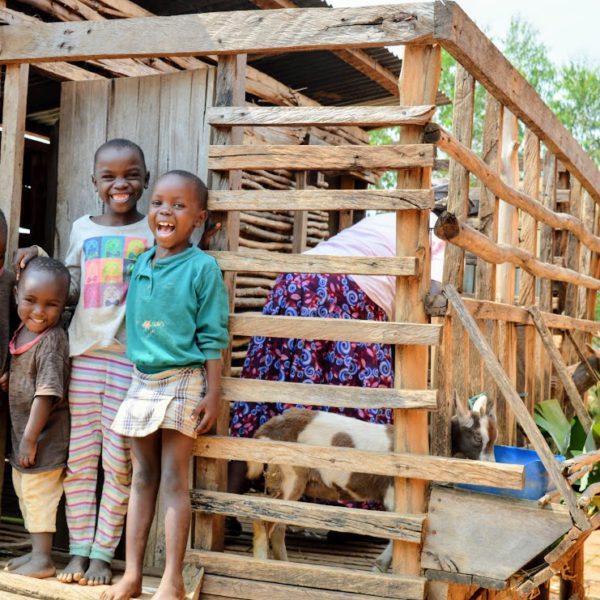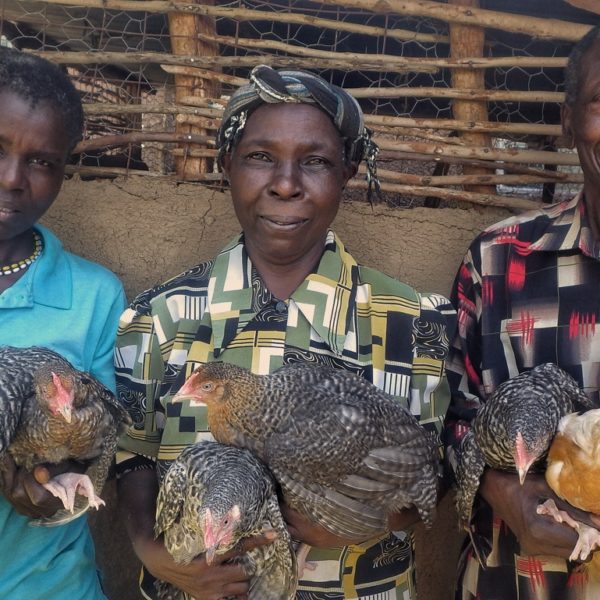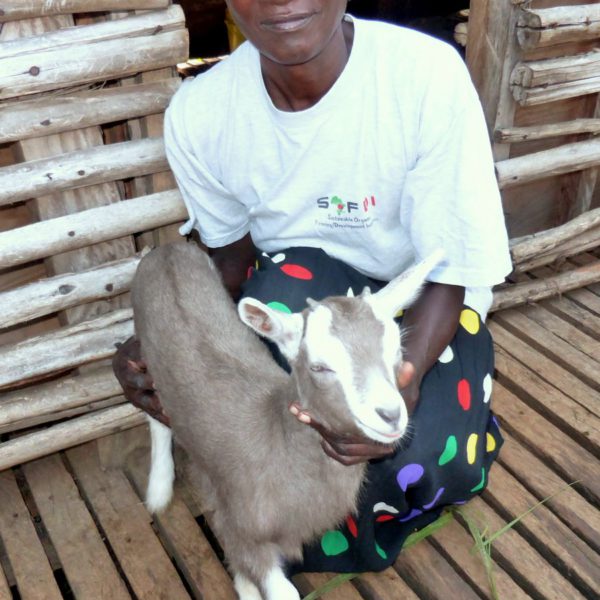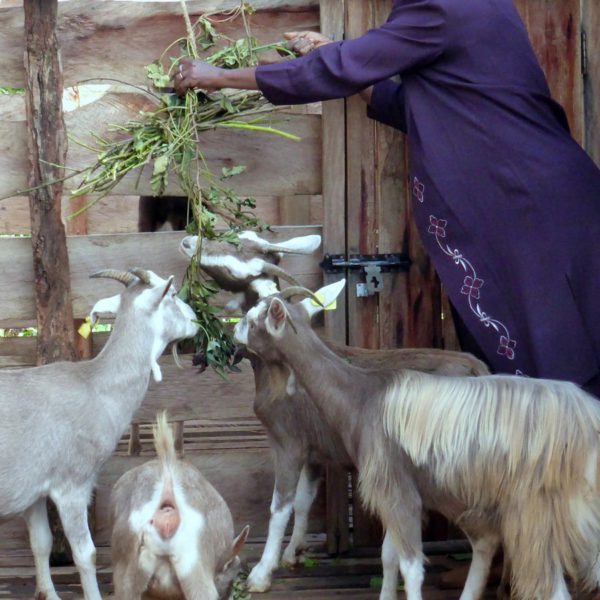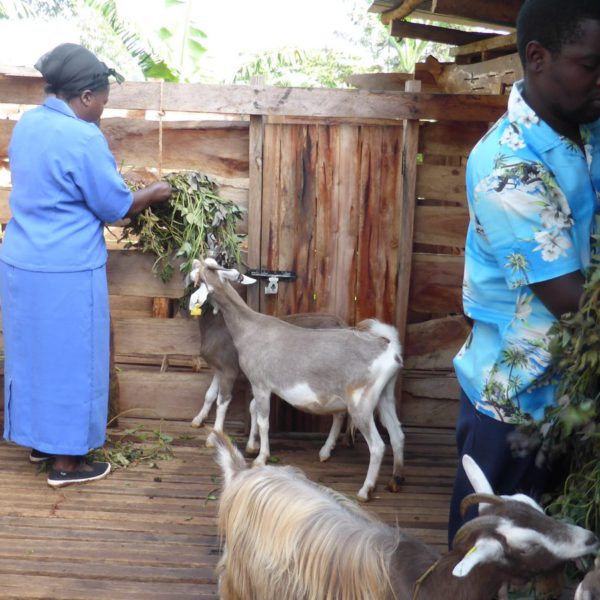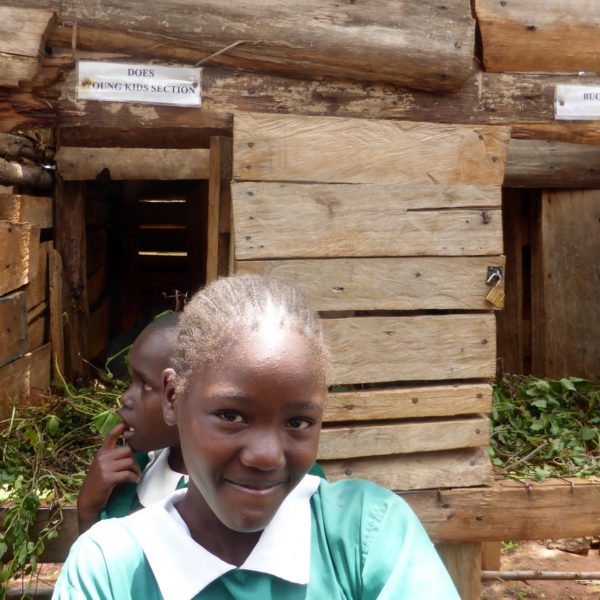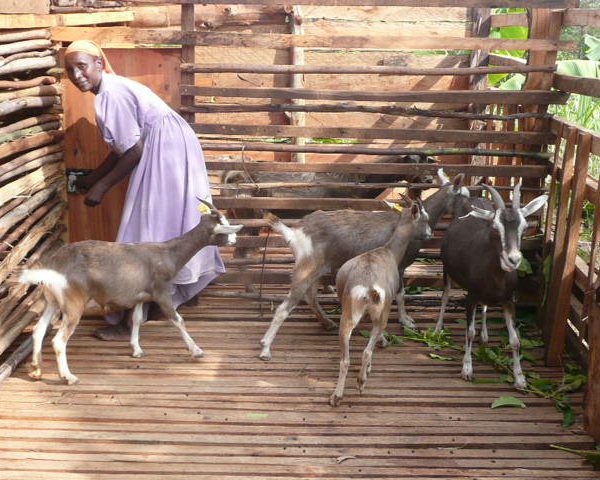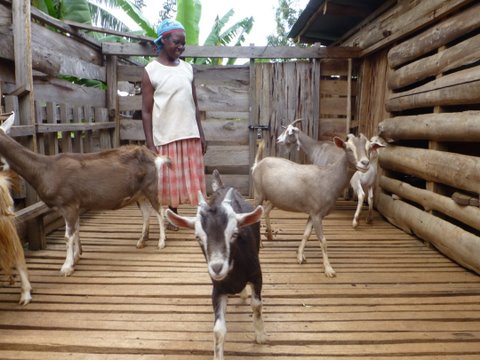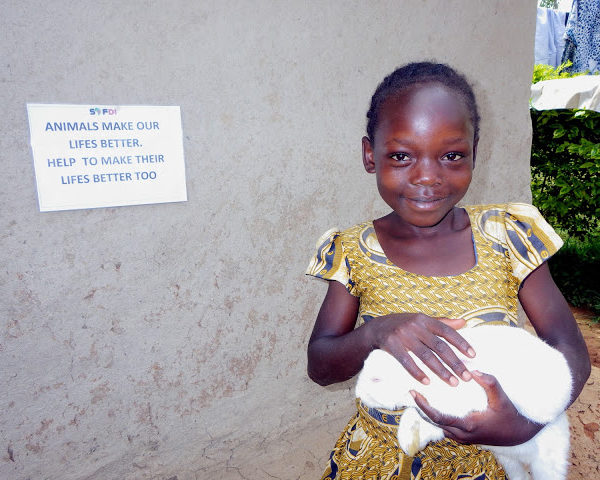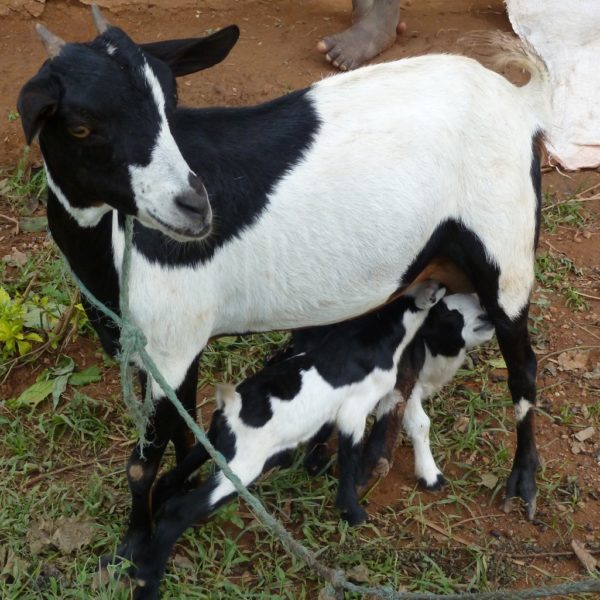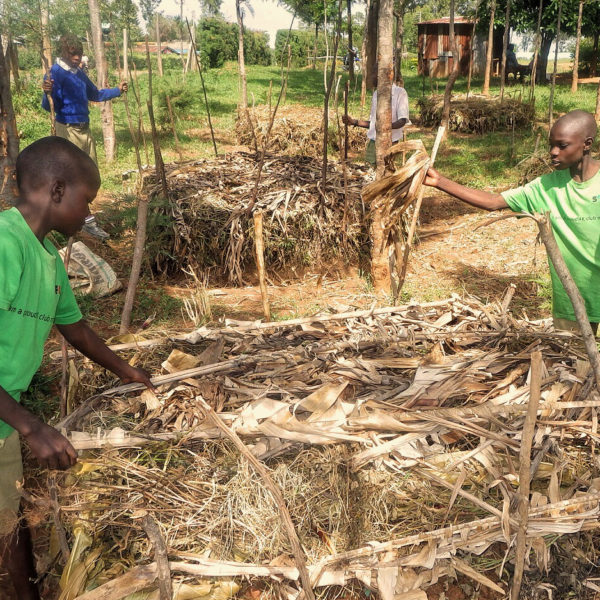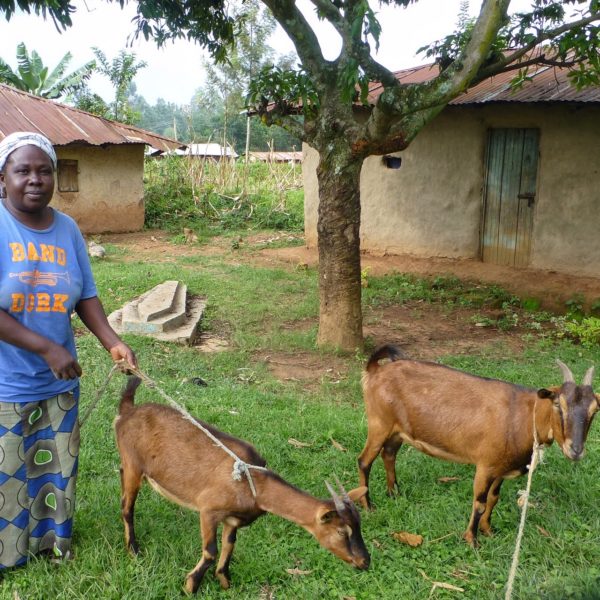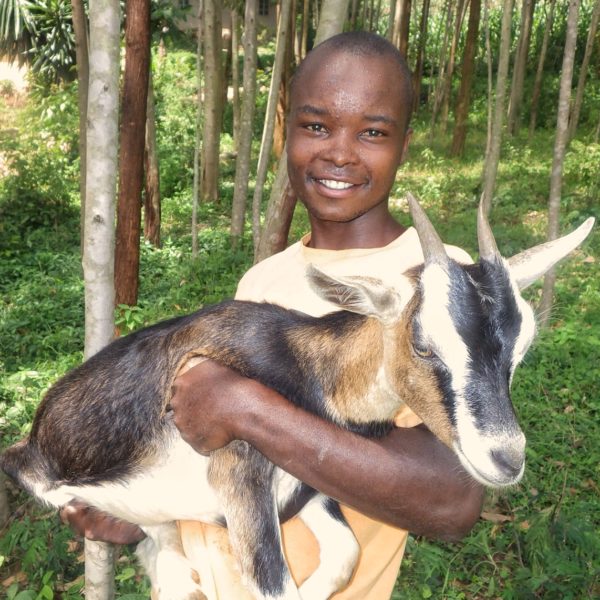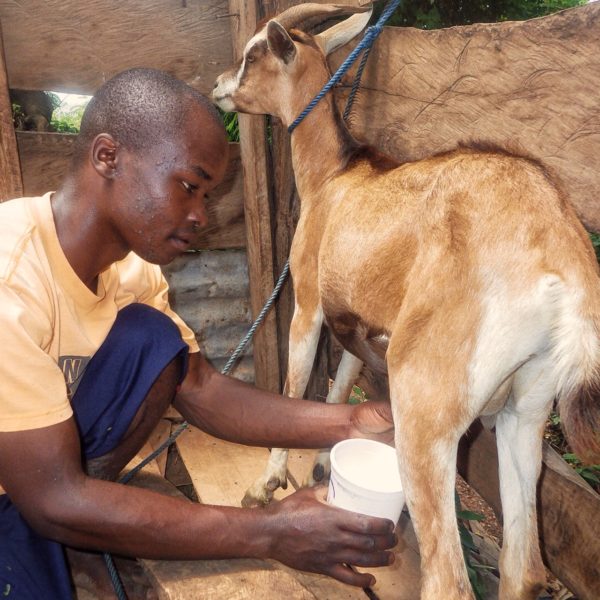CHALLENGE
In Kenya smallholder farmers keep goats mostly for meat because the local breeds do not produce enough milk for human consumption. Yet goat’s milk has a high nutritional value and goats actually need less fodder than cows. Many well-meant projects have introduced the breeding and keeping of “exotic” goat breeds that can produce more milk, but these often fail due to lack of comprehensive training and continued support to succeed.
OUR APPROACH
The importance of small livestock to the socio-economic well-being of farmers cannot be over-emphasized. With our strong focus on organic farming, soil improvement and nutrition we have successfully integrated livestock into our agriculture programs. Keeping livestock also makes farmers less vulnerable in times of adverse weather when agriculture yields can be affected. The breeding of Swiss Toggenburg dairy goats has been one of SOFDI’s first projects involving mostly women. Through our extension services, we have trained these groups in good husbandry and management practices, including the practice of artificial insemination.
One of our programs specializes in the breeding of Toggenburg goats where the off-springs are passed on to other group members. Another program is aimed at upgrading local goats with the Toggenburg breed. The off-springs bred from the up-grading process have 65% to 70% of the genotype of the Toggenburg goat with combined advantages of both breeds: higher resilience to diseases, higher milk production, and the possibility to keep goats under free range conditions.
Both projects have resulted in remarkably improved household income, an improved diet through protein intake and substantially increased crop yields due to ample availability of manure. Some farmers are able to sell compost as another income-generating opportunity based on this project.
RABBIT REARING
Rabbits offer another possibility to benefit from the integration of livestock into agriculture and an improved diet. Rabbit rearing has been introduced in most of our schools.
ANIMAL WELFARE
is a big concern for SOFDI and education on the topic is an integral part of all of our livestock projects. We want all animals to have a good life through a responsible use of animals for human purposes. We belief that animals should be cared for in ways that minimize fear, pain, stress, and suffering. We believe that animals should be treated with respect and dignity throughout their lives and, when necessary, provided a humane death.
In 2019 we shall integrate a program on human education in collaboration with SPANA (spana.org) and Africa Network for Animal Welfare (anaw.org)

